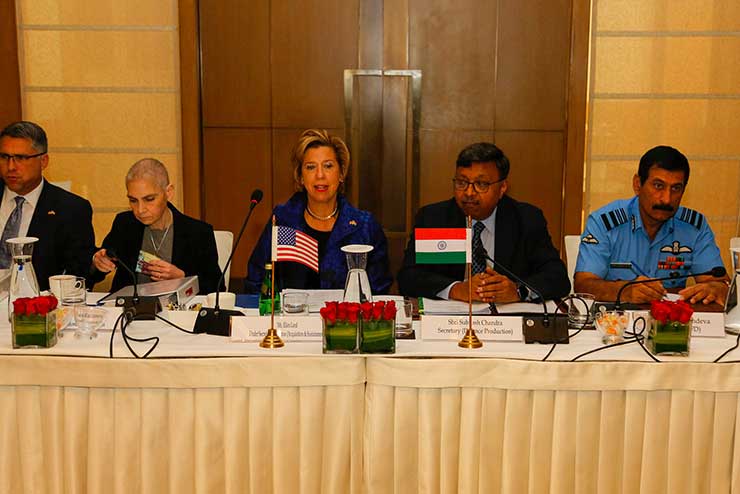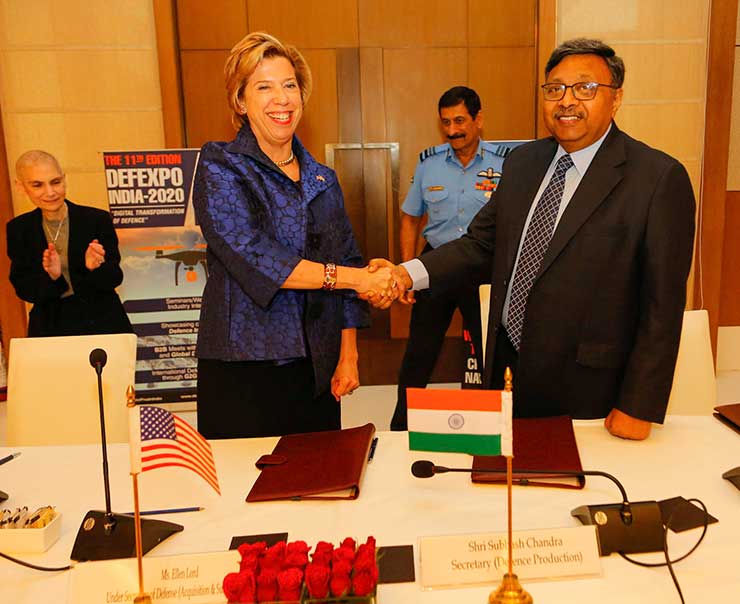
New Delhi. In what can be perceived as a major setback to India’s plan to make a jet engine that could power future indigenous fighter aircraft including the Advanced Medium Combat Aircraft, a fifth-generation aircraft, India and US “suspended” the plan to collaborate on jet engine technology.
The two sides had set up a Joint Working Group on Jet Engine Technology and had been meeting regularly under the Defence Trade and Technology Initiative (DTTI).
“The original project is suspended right now. But we are talking about other potential engine working group items,” said the US Under Secretary for Defence Ellen Lord.
She explained that the US could not come to an understanding of what exportable technologies would be useful to the Indians. “We did run into challenges in terms of US export controls,” she said. “That being said, we think there is an enormous amount of aircraft technology that we could do together. The teams are working for areas of common interest that we can export.”
India has been working on the indigenous Kaveri engine but has not been able to get the requisite power. It was pinning its hopes on the “hot engine” technology, considered by the US as the crown jewel in jet engine technology.
The main problem was that the US was unwilling to transfer the high technology that was much needed for the engine programme to take off.
Lord said new initiatives are being taken under DTTI and added that both countries have come a long way since they started the Joint Working Group (JWG) format in 2015. “I know that in the past there have been frustrations with progress under DTTI, but I can assure you that we are making considerable progress,” she said.

“The JWG co-chairs are working hard to show progress on current projects and identify new ones,” she said. “The technologies that they are discussing are significant — things such as virtual augmented reality, air-launched UAS, networked operations, brand- new weapon and light-weight ammo designs.”
She said the two countries agreed to a joint statement of intent (SOI) that will deepen defence technology cooperation, and interoperability consistent with shared national security interests and respective national laws.
“Further, the SOI outlines the need for detailed planning and measurable progress on specific short, middle, and long-term DTTI projects that are identified in the document,” she said. “This demonstrates how DTTI is making progress and that both sides are fully committed to it.”
Both sides also agreed to a near-term timeline to complete a DTTI Standard Operating Procedure (SOP) that will guide both countries as they coordinate projects under two different systems. “We identified the upcoming 2+2, potentially this December in Washington D.C., as a near-term opportunity to finalize the SO,” she said.








